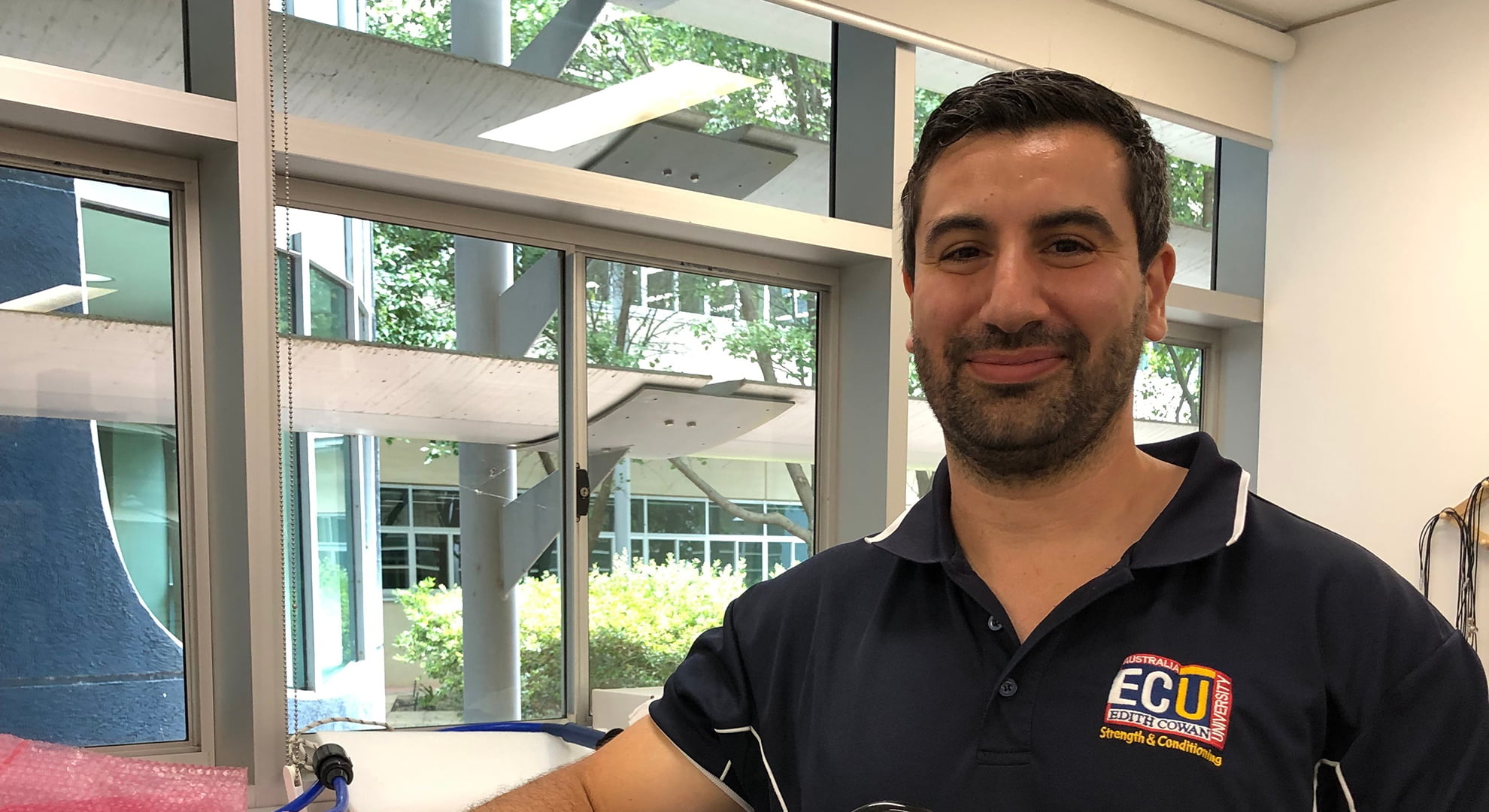MS Australia has awarded Edith Cowan University (ECU) a grant to continue its research into how motor neuron behaviour contributes to muscle weakness in multiple sclerosis (MS), which will help fight against this increasingly common and debilitative disease.
Dr Christopher Latella is a Lecturer in Strength and Conditioning working on research in the Neurophysiology Research Laboratory at ECU's School of Medical and Health Sciences.
His work builds on recent evidence suggesting a problem with serotonin and noradrenaline in the nervous system of people with MS.
However, it is not known if the spinal motor nerve cells are also affected.
Dr Latella's project will record the electrical activity of leg muscles and decode these signals to work out the firing of spinal motor nerves during voluntary muscle contractions.
The patterns of firing will help determine whether the persistent inward currents are working properly.
Dr Latella said muscle weakness is common in people with MS.
"Problems with spinal nerves that activate limb muscles have previously been identified," he said.
"They fire less and cause weaker muscle contractions. Special properties of these nerve cells (persistent inward currents) help them fire and depend on the release of hormones such as serotonin and noradrenaline in the spinal cord."
Specifically, Dr Latella will compare the firing of motor nerve cells of people with MS to people without MS, and then investigate whether changes in the properties of the motor nerve cells influence performance of tasks like walking and standing in people living with MS.
He said the team was pleased this research was chosen as having the potential to lead to significant advances in treatment and prevention, and in finding cures for MS.
It is the most acquired chronic neurological disease affecting young adults and affects three times more women than men.
As yet, there is no cure.
Alarmingly, a recent report discovered MS is rising at an accelerating rate in Australia, with the number of people diagnosed from 2017 to 2021 increasing from 25,600 to 33,335 – a 30 per cent rise.
MS Australia President Associate Professor Desmond Graham congratulated the successful research teams and thanked those who had generously supported MS research.
"The projects and researchers funded are of the highest quality and have the most significant potential to make a difference for people living with MS," Professor Graham said.
For more information see MS Australia grants media release.
 Dr Chris Latella
Dr Chris Latella



